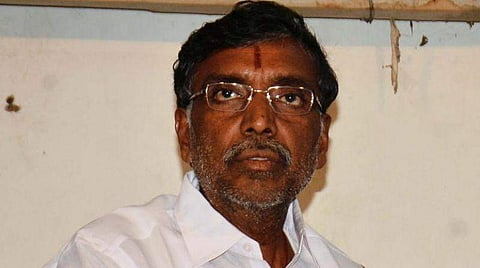

In his first point, Anbalagan said ‘proudly’ that Tamil Nadu had already achieved a Gross Enrollment Ratio of 49 percent according to the All India Survey of Higher Education. The NEP has set a target of achieving 50 percent GER by 2035 in Higher Education, “We are very hopeful to reach 50 percent this academic year itself. We have taken various measures like opening new colleges, introducing new courses, increasing capacity of colleges by recruiting teachers, creating labs and other facilities and we will continue to do the same. Tamil Nadu can achieve an ambitious target of 65 percent by 2035,” he wrote. He also informed the Union Minister that Tamil Nadu had a teacher student ratio of 1:17 when the All India ratio is 1:26.
Anbalagan probably made a lot of activists and educators in the state happy by showing his displeasure at the Centre’s decision to allow the National Testing Agency to conduct entrance exams. “This move would discourage rural students and the government is not for such a proposal. This would also further burden the students,” he said.
The NEP has said in its final draft that colleges that were not upto a certain standard of quality or if they did not have 3000 students in its campus then they would be merged with other Universities. Many educators were against this proposal as this would disadvantage students from the rural communities especially from remote areas who would not be able to travel far from their homes to attend classes. Anbalagan in his letter said that they would not be following this and would continue with the system currently in place, “I would like to point out that this strategy of categorising colleges only as autonomous or constituent colleges, will deprive affiliated colleges the capacity or the capability of becoming autonomous degree colleges as they will lack, suitable guidance from the affiliated universities,” he said.
“I would like to point out that in Tamil Nadu, out of 587 college across the state, only 53 colleges are autonomous colleges and all the other colleges are required to be nurtured suitably by the affiliated universities and then improve their quality standard. Hence the present model of Tamil Nadu may be allowed to continue,” he asserted. He went on to state that the NEP envisaging that Higher Education Institutions should offer degree courses in regional languages was already followed in the state. The highly anticipated decision on the two-language policy was also made official again by Anbalagan, “Tamil Nadu has always followed the two-langauge policy which has been a success. The state government has already taken a decision to continue with the policy in the future as well,” he added.
The one point that Anbalagan did welcome was the NEP committee’s decision to convert the BEd programme into a 4-year Integrated Degree Course including two major subjects, “This is a welcome measure as it will enable students to complete the degree early and enter into the teaching profession quickly. This would help a lot of students who have opted for core studies,” the Education Minister said.
